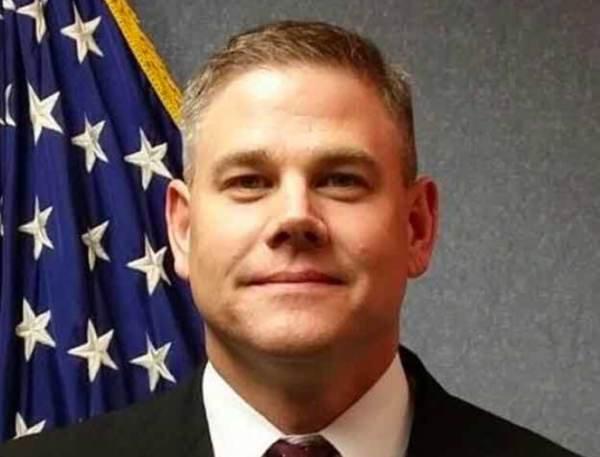JOHN SOLOMON: State Department’s Red Flag on Steele Went to Senior FBI Official 8 Days Before FISA Warrant Granted on Carter Page
by Cristina Laila, The Gateway Pundit:

Last week, award-winning investigative journalist John Solomon obtained memos from a high-ranking government official who met with former British spy Christopher Steele in October of 2016, who determined that Steele’s ‘dirt’ on Trump was inaccurate and likely leaked to the media.
Kavalec flagged this in memos and handwritten notes just 10 days before the first FISA warrant on Trump campaign advisor Carter Page was granted.
Multiple sources confirmed to John Solomon on Tuesday that Kavalec’s red flag on Steele was immediately sent to a senior FBI official.
The email from State Department official Kathleen Kavalec was sent to Special Agent Stephen Laycock, then the FBI’s section chief for Eurasian counterintelligence, 8 days before the first FISA warrant was granted on Carter Page.
In November of 2018, FBI Director Christopher Wray named Stephen Laycock Assistant Director for the Directorate of Intelligence.
Mr. Laycock immediately forwarded Kavalec’s email to the team spearheading the ‘Trump-Russia’ investigation, led by counter-intel chief Peter Strzok.
Recall, the FBI swore to the FISA judge that Christopher Steele’s “reporting has been corroborated and used in criminal proceedings” and the FBI determined him to be “reliable” and was “unaware of any derogatory information pertaining” to their CHS [Confidential Human Source], who was also working for Fusion GPS, the oppo research firm paid by Hillary Clinton and Perkins Coie to dig up dirt on Trump.
One red flag Kavalec caught? Steele claimed that ‘payments to those recruited by the Russians to target the election were made out of the Russian Consulate in Miami.’ There’s only one problem with this claim — there is no Russian Consulate in Miami.
Via The Hill:
Laycock was the normal point of contact for Kavalec on Eurasian counterintelligence matters, and he simply acted as a conduit to get the information to his colleagues supervising the Russia probe, the officials added.
The officials declined to say what the FBI did with the information about Steele after it reached Strzok’s team, or what the email specifically revealed. A publicly disclosed version of the email has been heavily redacted in the name of national security.
While much remains to be answered, the email exchange means FBI supervisors knew Steele had contact with State and had reason to inquire what he was saying before they sought the warrant. If they had inquired, agents would have learned Steele had admitted to Kavalec he had been leaking to the news media, had a political deadline of Election Day to get his information public and had provided demonstrably false intelligence in one case, as I reported last week.
Current and former FBI officials told me it would be a red flag for an FBI informant on a sensitive counterintelligence case such as Russia to go talking about his evidence with another federal agency without authorization.
Kevin Brock, the former FBI assistant director for intelligence, said the State Department’s email in October 2016 ordinarily should have triggered the FBI to re-evaluate Steele as a source. “This is quite important,” Brock said. “Under normal circumstances, when you get information about the conduct of your source that gives rise to questions about their reliability or truthfulness, you usually go back and re-evaluate their dependability and credibility.
Christopher Steele was terminated by the FBI in November of 2016 for breaking CHS protocol and leaking to the media.
John Solomon pointed out another mystery: Kavalec had two exchanges with FBI officials about Christopher Steele two weeks before her meeting:
The officials also declined to address another mystery that has caught congressional investigators’ attention: Kavalec had two exchanges with FBI officials about Steele approximately two weeks before her meeting. The email contacts on Sept. 29-30, 2016, have been redacted, except for a single phrase “Thank you Kathy.” Congressional investigators want to know if the earlier exchange resulted in Kavalec learning in advance of Steele’s work for the FBI, or was a further tipoff to the FBI of Steele’s intention to visit State, a department where he had offered pro bono information in the past.
Senate Judiciary Chairman Lindsey Graham told Maria Bartiromo on Sunday that he is working to declassify a sensitive document that will prove the FBI knew the Steele dossier lacked credibility before it was used to obtain a FISA warrant on Carter Page.
Read More @ TheGatewayPundit.com
Loading...



